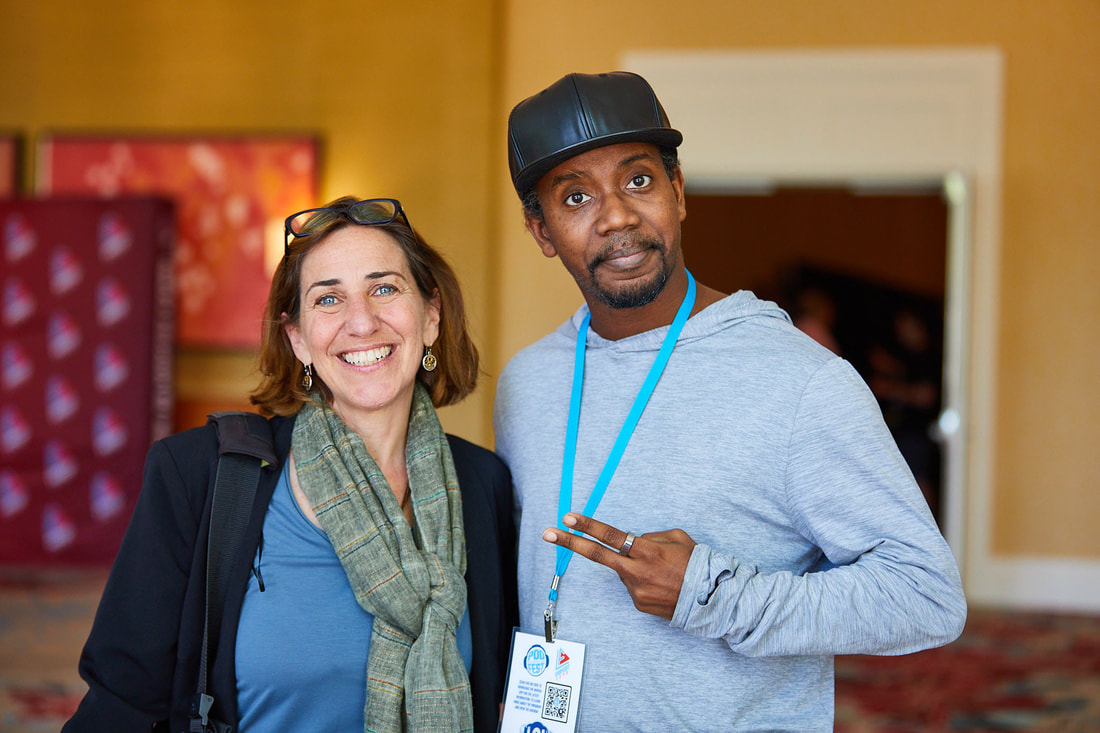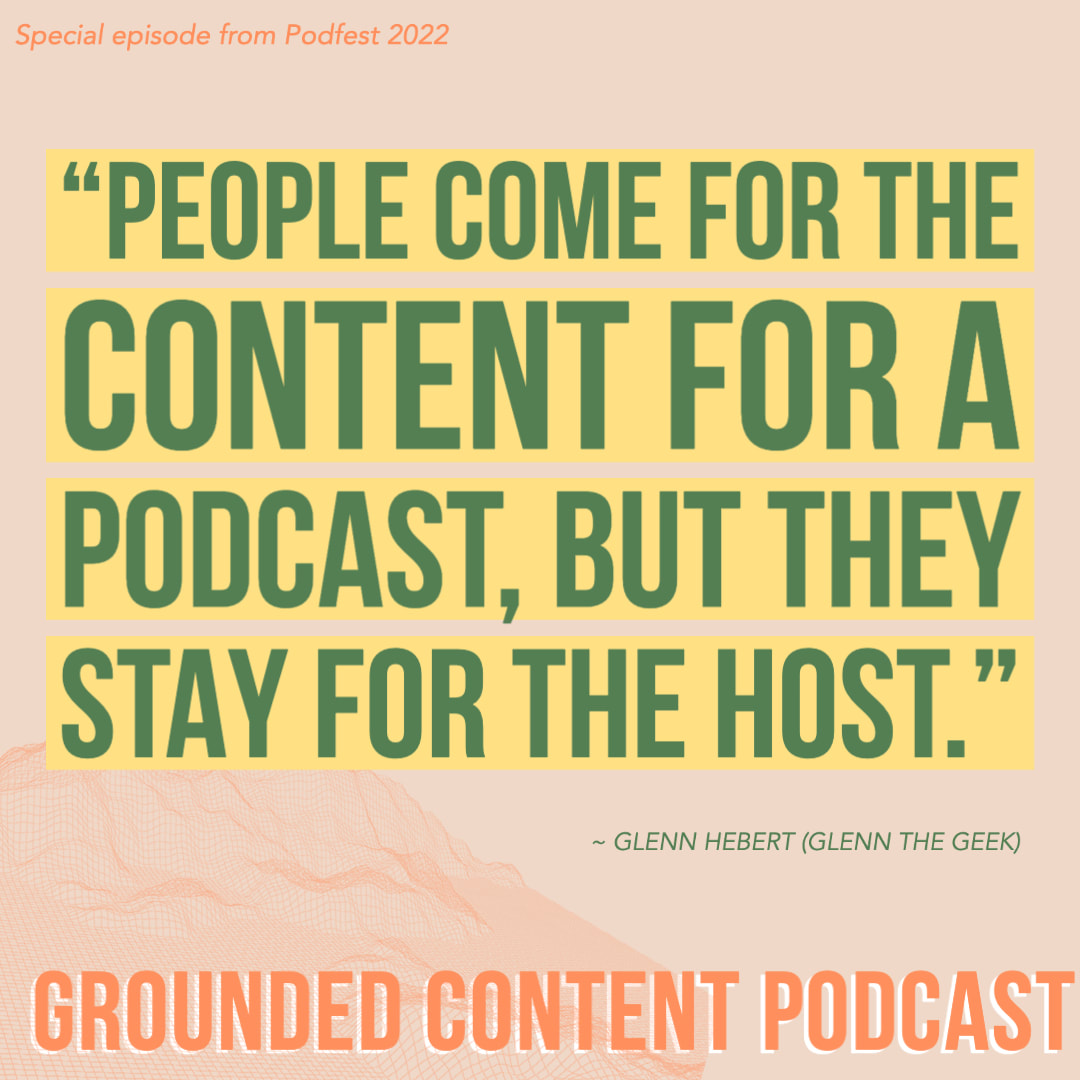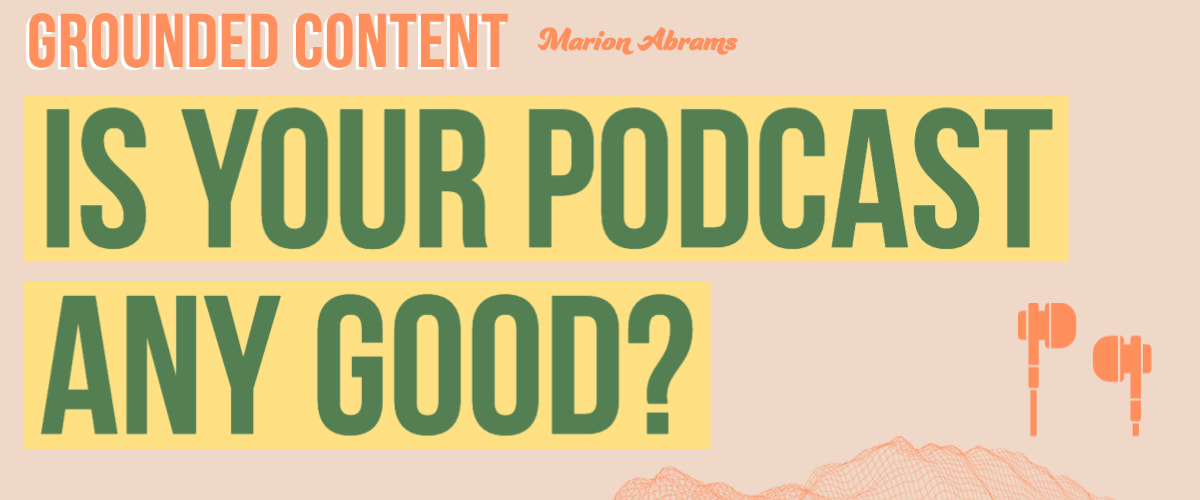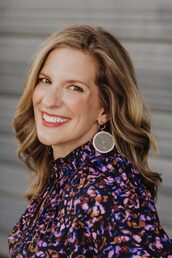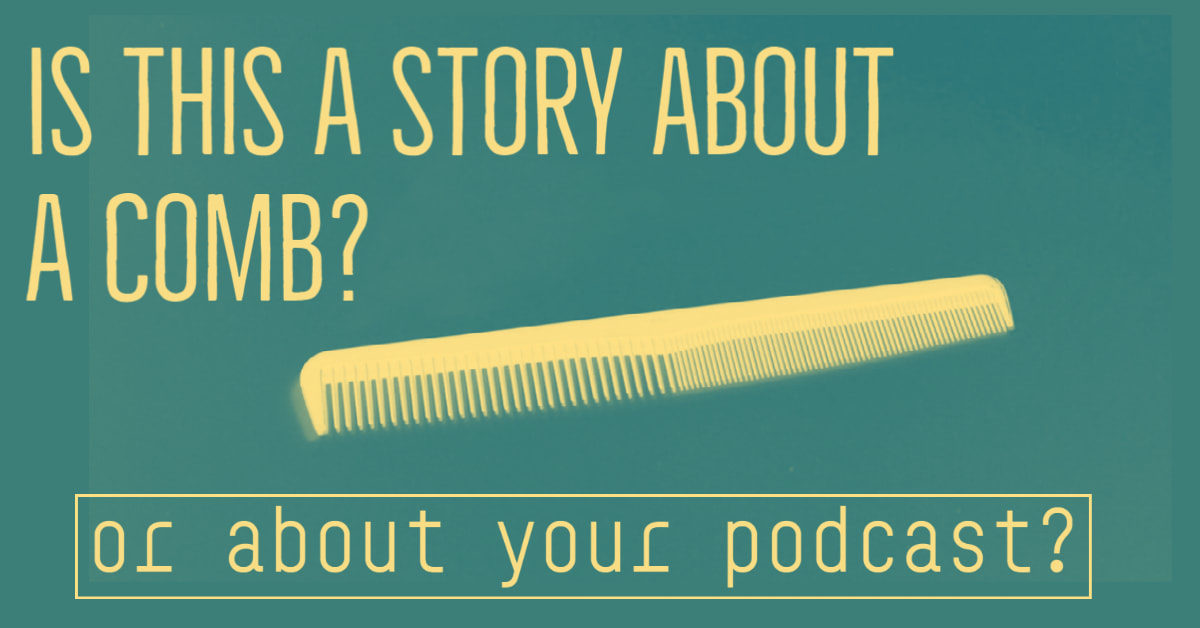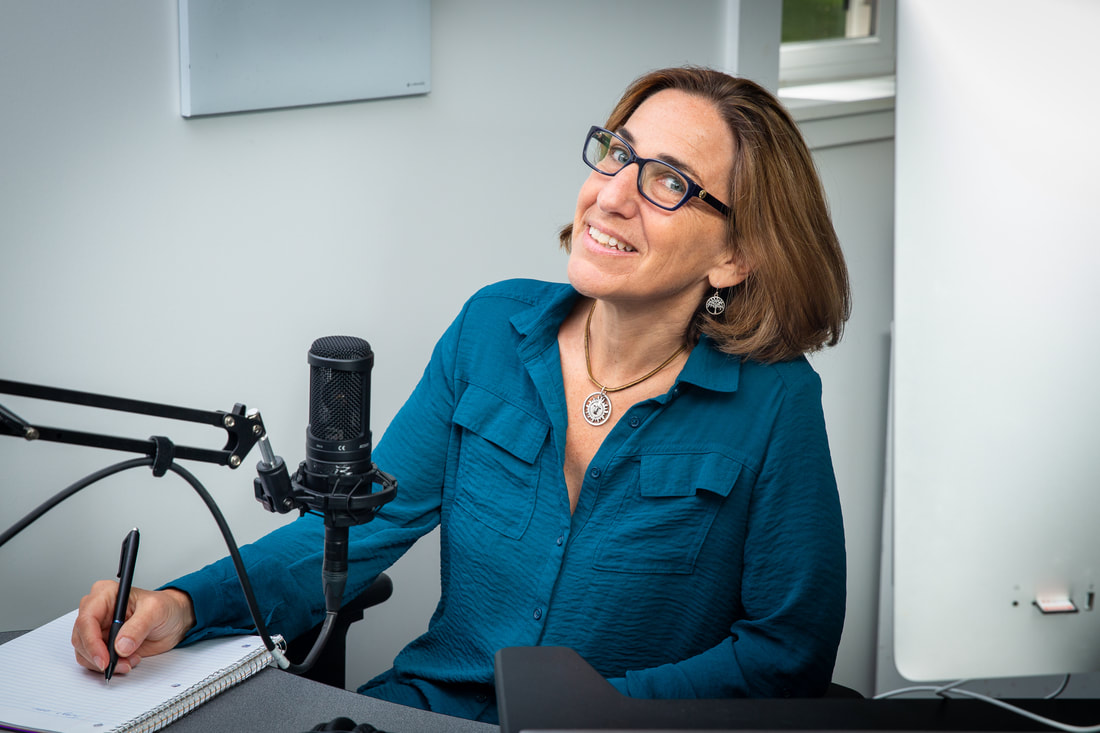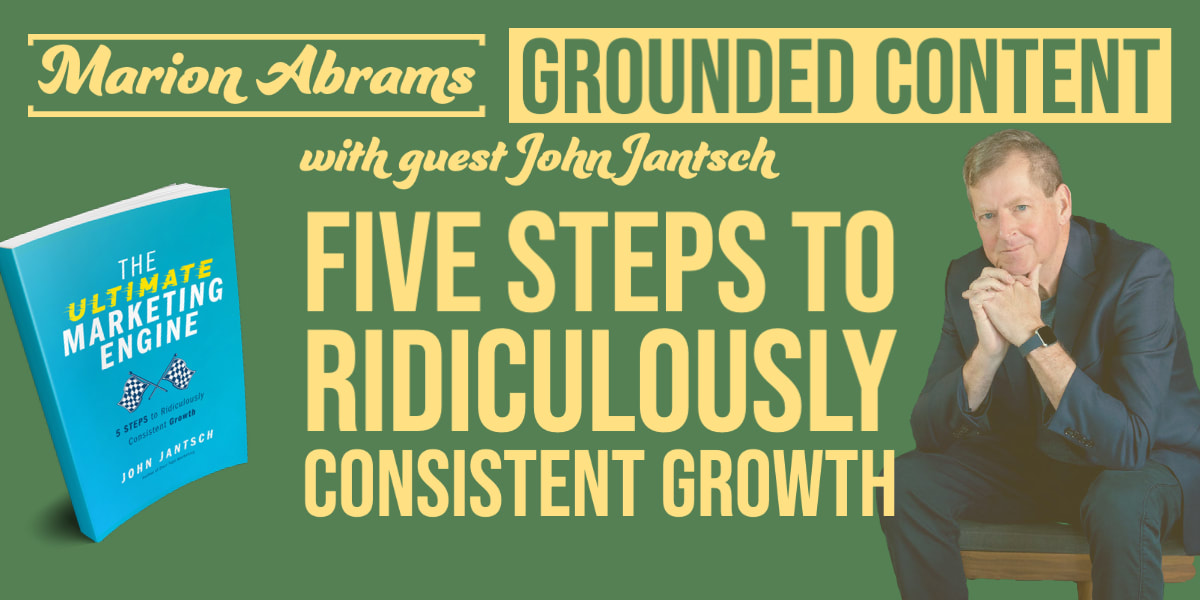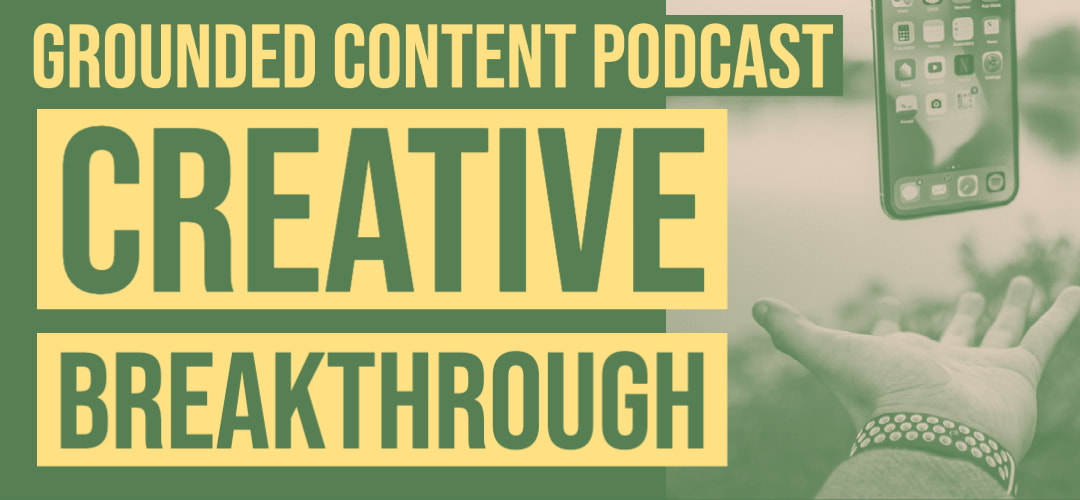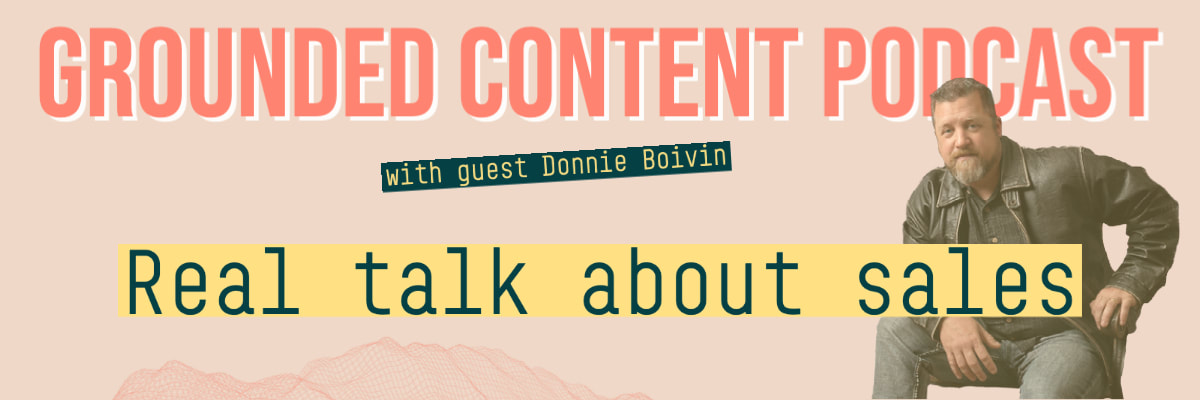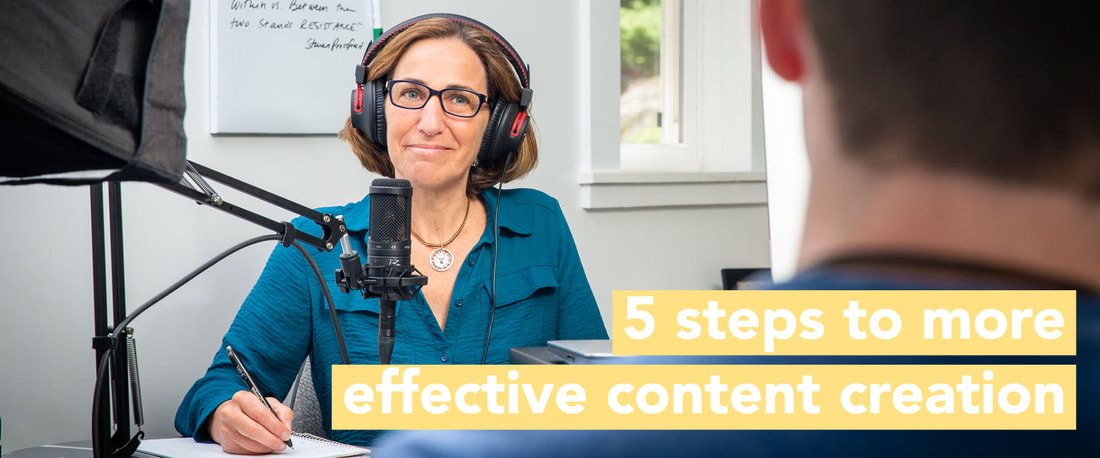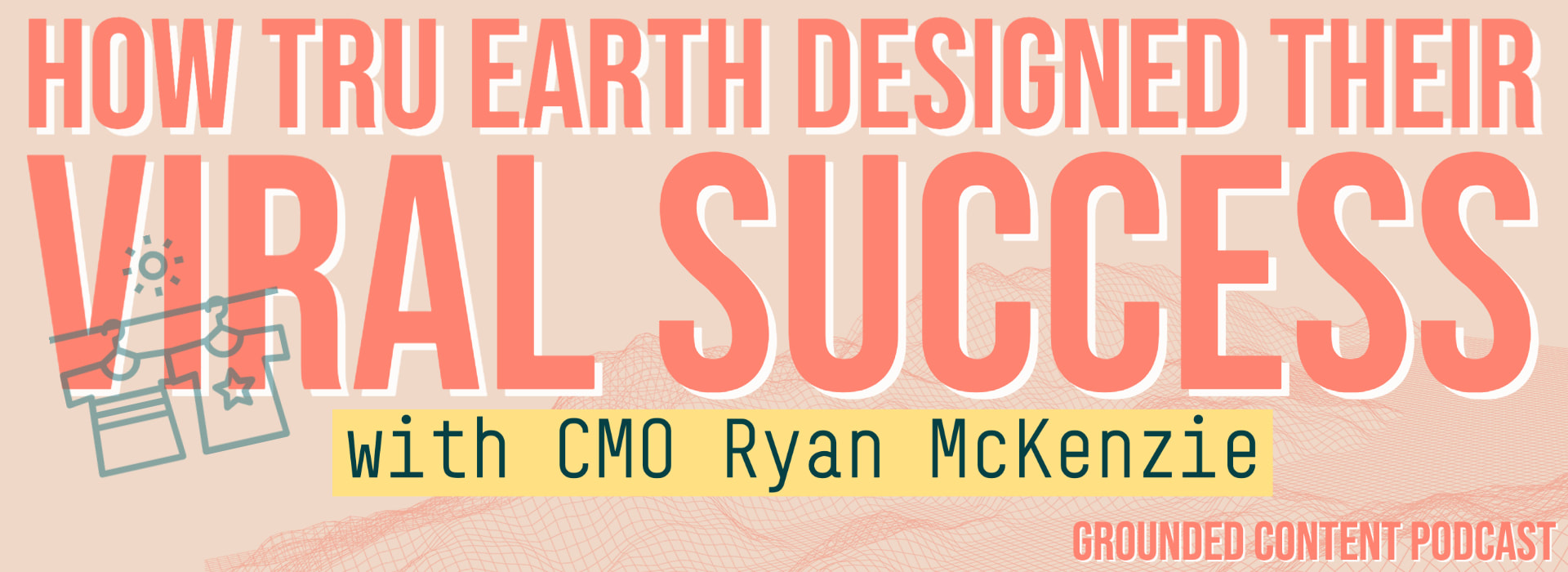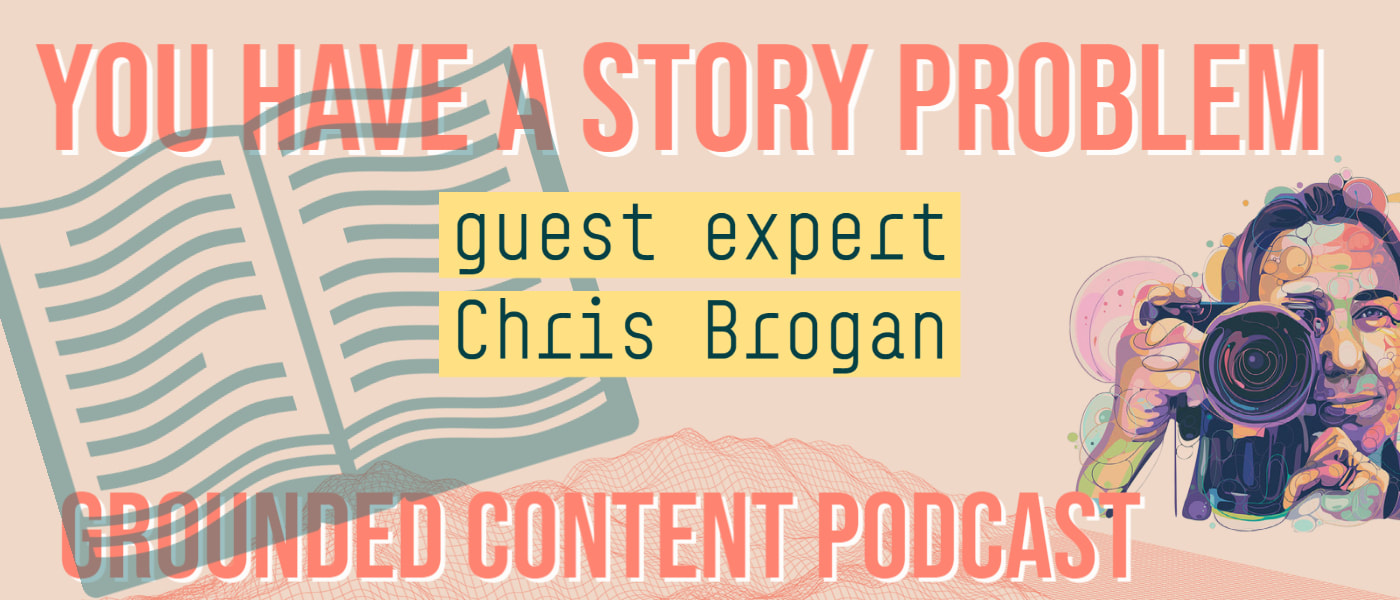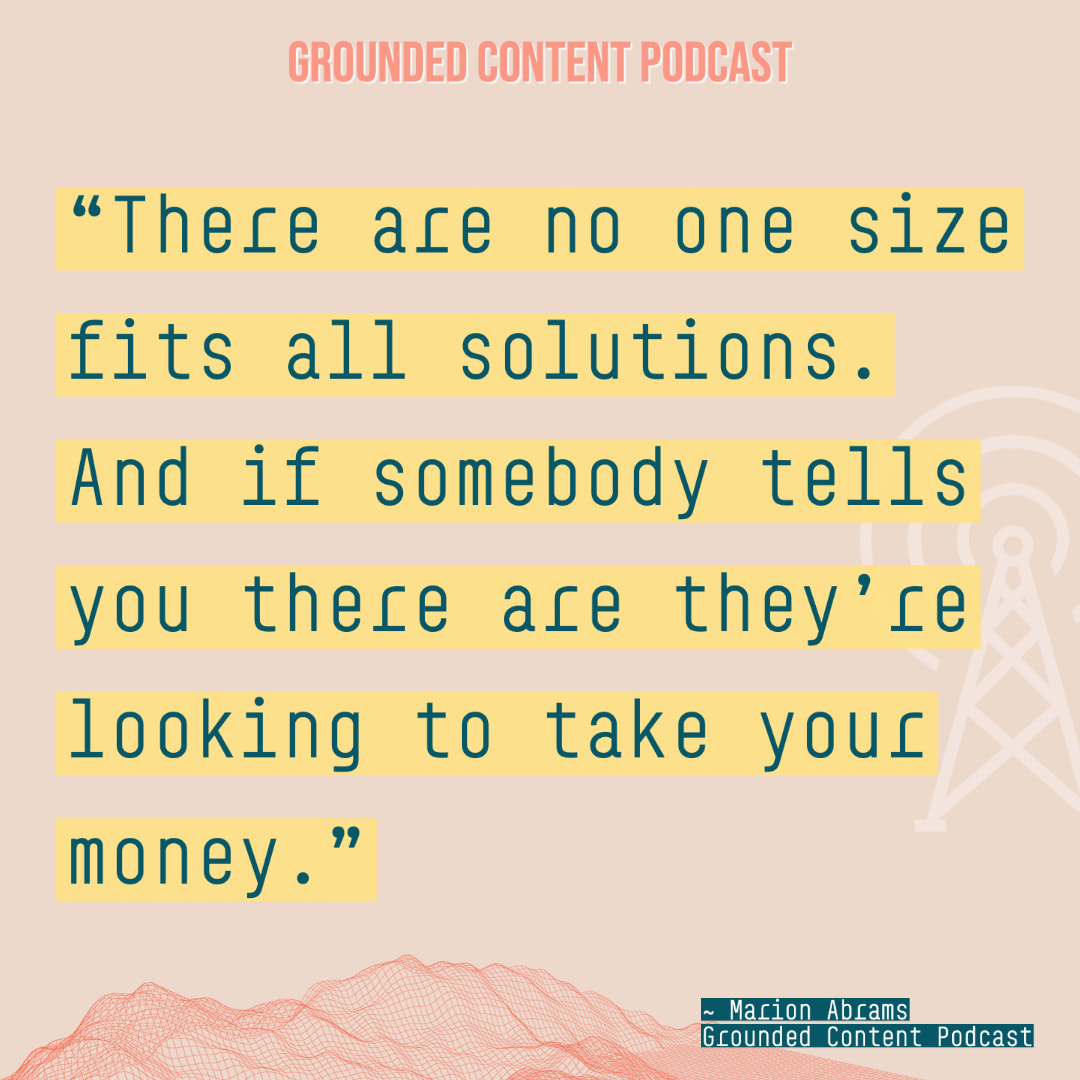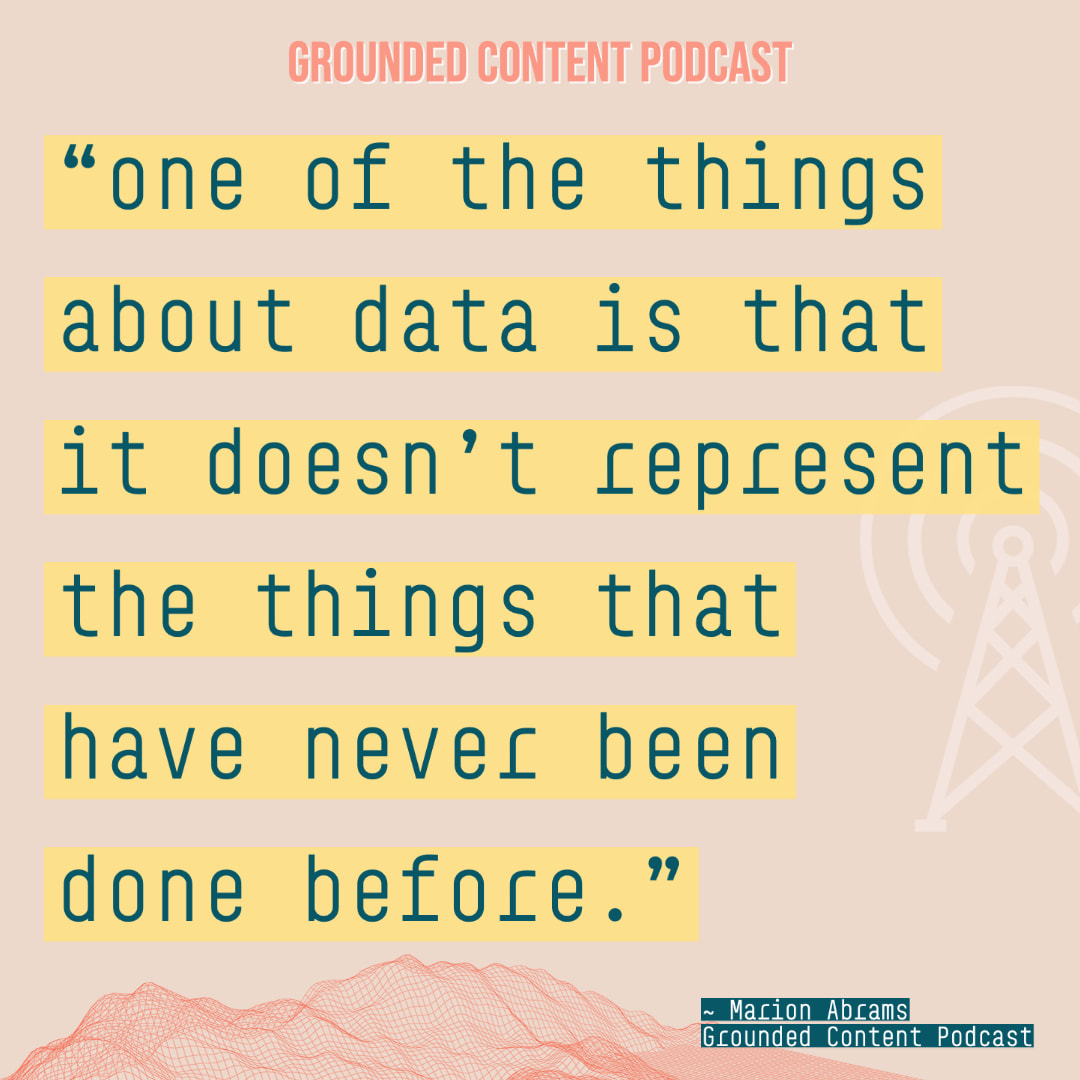|
This episode (vlog meets podcast) takes you with me to Podfest Expo 2022 in Orlando. You'll hear from the show floor at Podfest and from YouTube experts, live streaming experts, Podcast Network experts, and storytelling experts.
Guests on this episode:
And at the end of the episode, I will share a wrap up of my biggest takeaways from the event, what I learned and what it's got me thinking. The format of this episode is kind of a creative experiment for me. I was having fun with it. And I want to know if it works for you. Listen:
LINKS
Roberto’s Book https://amzn.to/3xd0XvM Roberto’s podcast “Create Something Awesome Today” https://podfollow.com/1006743050 Horse Radio Network https://podfollow.com/384081509 Interview Vallet https://interviewvalet.com/ Evergreen Podcasts https://evergreenpodcasts.com/ BG Adgroup http://bgadgroup.com/
If you're a content creator, a content strategist, a brand, or an entrepreneur struggling to make effective content, how do you know if your content is any good? You can look at numbers, you can look at rankings, and download status, but those don't actually tell you if the content is good. They tell you if you've reached your audience yet if your audience is growing.
If you've heard any of my advice about growing an audience, you know that I talk about three important pieces to audience growth and audience development. You can think of them in terms that might be familiar, customer acquisition, customer service, and customer retention. The acquisition, that's where you go out into the world, you tell people about your show, your product, or your channel, and you get them to come back and find you. Customer service, or audience service, that's making sure once they do find you, you keep that promise you made to them. You make it a place they want to be, they feel like they got what they came there for. And third, customer retention or audience retention, they listened to an episode, they read a post, how do you get them to come back for more? If you don't have that second piece, the audience service piece, in place all the growth and all the advertising you do won't work. That second part is about having great content. One way to know if you have great content is to listen. If you have a podcast, one of the easiest ways to improve your content, is to listen like your listener listens, not during the edit, not during the scripting, not during the recording. But once the show is published, put on the earbuds and listen on your run, listen in the gym, listen in the car on your commute, listen when you're folding laundry, listen the way your audience listens. It's like the advice you get when you're writing an article, change the font or print it out, and you'll see the mistakes. Your mind skips over the things you already know unless you change the context. If you listen to your podcast, like your listener, you will hear things that you wouldn't have noticed before. Then ask yourself these four questions. They're the same four questions that I asked when I needed to get a 3 hour rough cut of my documentary down to 1 hour for broadcast. I went to my friends, my trusted colleagues, and I said, "do me a favor, the best favor you can do for me is answer these four questions." These are the same four questions that you can ask yourself when you listen to your own content. #1 When did you get bored? When did you find your mind wandering? #2 When did it feel repetitive? Like you'd already heard that idea before? #3 When was it confusing? When was a link missing? You couldn't quite get from point A to point B, there was some context that hadn't been included. #4 Where did it grab you? Where did you have to hit that rewind button and hear it again, because it was so interesting and exciting? Those four questions can be a guide to making your content even better. A lot of people new to content creation, are afraid to listen to their own content, because they don't want to hear it. But if you don't want to hear it, how can you expect your audience to? Don't listen, to be hard on yourself. Listen to find places where you can make it better. Want to Be a Good Podcast Guest?
Here’s a 1/2 hour primer on how to get on more podcasts, be a better guest, AND to get results from the appearances. I interviewed Tom Schwab from Interview Vallet, they land 50% of every pitch they make, and Tom explains how they do it. Collective Story, Culture Hacking & Culture Jamming Jeff Gomez worked on projects like Pirates of the Caribbean and Avatar, he talks about the importance of the AUDIENCE in every story, and also the difference between culture hacking and culture jamming and the power and danger that each hold. Help a Podcaster & World Central Kitchen #Reviews4Good: Pochaser brings back #Reviews4Good for the third year. Leave a review for any podcast on Pochaser this month and they’ll donate. DETAILS here… and in case you want to review Grounded Content here’s the direct link . Is Your Content Any Good? Watch it or listen to it and ask yourself these 4 questions. Podcast Strategy and more: I’ve been on some podcasts lately, and I love the thought provoking questions the hosts have asked.
What Am I Listening to this Week?
"If your goal is a content creator is to get more listeners and more people engaged and get people to actually take action, then you need to be thinking about what they need from you, not how you need to show up for you." ~Alex Perry
Every podcast is looking for ways to grow its audience. There are 3 main components to podcast growth:
1. Bring in NEW listeners 2. Serve those listeners 3. Get those listeners to come back or subscribe I usually like to focus on the second one of these, but in this podcast episode my guest Paula Jenkins and I go through a list of 15 ways to do the first. 15 ways you can get new listeners and grow your audience. 1. Email list 2. Paid social media 3. Organic social media 4. Ads in podcast apps 5. Ads in podcasts 6. Podcast guesting 7. Podcast promo swaps 8. SEO & blog posts 9. YouTube 10. PR 11. Innovate (we give examples) 12. Repurpose 13. Speaking 14. Link in bio 15. Link in email signature
Zach Kazin is the senior director of content partnerships at Vox creative. In this episode, we talk about how he thinks about that role and about content partnerships. What's the difference between an indie or hobby content creator, and one who does it professionally? What's his advice for creators looking to build a career? How do business goals and creative goals intersect? And most important - what makes great content?
Interview with Zach Kazin:When I was about 10 our babysitter came in with a new comb "it's unbreakable" he said.
"Is it really unbreakable?" I asked, "or is that just what they say in the advertisement?" "It's unbreakable," he told me proudly. So 10 year old me bet him a dollar that I could break the comb. I tried bending it in my hands but it just bent back. Determined and curious I took it to the basement and put it in my father's vise, tightened it, grabbed the comb with a pair of vise-grip pliers, and put all my weight into it. SNAP! The comb broke in two. What's the message of the story? What does it have to do with your podcast or your content strategy? Is the story evidence of some essential truth in the world of content? It's not, but it's a story that tells you a lot about who I am. Even today I'm sometimes socially oblivious, I'm always curious, I love to challenge ideas and take nothing at face value, I'm stubbornly determined when it comes to completing a task, and inventive when it comes to finding Solutions. There are 5 essential Ps to your podcast strategy. The second P is "Point of view." What's your take on the world? Your personality? That unique combination of things that makes you you? What makes your show about knitting, or boxing, or coffee roasting different from the hundreds of others about that? PS - I'll help you understand how to use this and the other 4 Ps to grow your podcast In my 90 day development process for podcasters. How do you find your voice? What's unique about your take on your topic? To join you must have a minimum of 10 episodes podcast published. More info on the "Grow your podcast" page. I can't believe how many smart people are paying attention to the wrong things. Do you need to sound good? Of course. Just like you need to be able to read the type when you open a book. But that isn’t what makes a book interesting & worth reading.
Decent sound quality is not the hard part, and yet it's all so many podcasters worry about. Let's take the writing analogy a little farther. There are very few great writers who haven't worked hard on their craft. Not how they hold their pen or the choice of word processing app. They dedicate effort to the craft of writing. Whether novels, biographies, magazine articles, or ad copy - most writers work, and work hard, to understand how to craft their messages, develop their ideas, and keep their readers engaged. I'm not suggesting you script your podcast. I'm telling you that if you want to be great - put more care, practice and intention into what you say and how you say it. And worry less about the mic you use. .. And PS - if you wonder how to learn this, I’ll be running a small group of podcasters through my process starting in January. Five Steps to Ridiculously Consistent Growth from Duct Tape Marketing / on Grounded Content Podcast11/10/2021
Grounded content strategy is practical strategy, who better than the founder of Duct Tape Marketing to help us with this? John Jantsch has a new book "The Ultimate Marketing Engine, 5 steps to ridiculously consistent growth." Everything we talk about comes from his real-life experience building businesses for his clients.
Get two free chapters of his book The Ultimate Marketing Engine.
Whether you're working on a podcast, a social media channel, creative projects for yourself, artwork, photography, social media, writing, journaling, almost any creative endeavor, you can use this technique to help you make a breakthrough to push yourself to the next level. And this works whether you're doing client work or personal work.
First - an important question. Do you want to do more? To be more? To make a breakthrough? Maybe you want to try solo episodes, or keep to a production schedule, add video, or do more social media, get on tick-tock, or study more, read more, learn more about your topic, learn more about your guests, maybe you want to pick up a whole new skill. That's what this process of creative challenges can do for you. In these two episodes, I explain, step by step, why this structure works, how to execute on it, how to design the right challenge for yourself, what to do to increase the chances of success and what to do when you fail. part 1part 2
Sales. That word freaks some people out and excites others. In this episode of the Grounded Content podcast I talk to Donnie Boivin, he's one of those guys who LOVES sales. He brings all those grounded qualities we love on GC to the mindset of selling. Make no mistake, he is a hard-driving salesperson. He's effective. He knows how to get the deals done, to sell what he needs to sell. And he teaches others how to do it. I think this will change the way you think about sales.
Find information about his programs, summit and podcast at DonnieBoivin.com
Is your content creating measurable results for your business? It should be. In this episode of Grounded Content podcast I go through a 5 step process you can use to get the tangible results you are looking for from your podcast, emails, youtube channel or social media.
Steve Watt attracted my attention on LinkedIn, his posts are human and effective. He's the marketing director at Seismic and a pro on LinkedIn where he has a solid following. Steve explains that he advises the entire team at his company to be a part of the marketing process by being active on LinkedIn. You'll hear the guidance he gives them, the reasons that he believes it's beneficial both for the company and the employees, and what he thinks makes an effective post - the right mix of attention, curiosity, and information.
FollowSteve on LinkedIn Seismic Find Marion on Instagram Find Marion on Linkedin Show host / producer: Marion Abrams Show editor: Kris Zarnoch
What creates viral success? The content? The strategy? The product? All three? Tru Earth founder and CMO Ryan McKenzie gives us a look behind the scenes at Tru Earth's viral strategies. How he thinks about his marketing strategy and how they execute on the viral video releases. AND it wouldn't be an episode of Grounded Content if we didn't ask that essential question - does the end justify the means? If the product makes the world a better place, does it matter how you "pitch" it?
AND - because this product DOES make the world a better place - BUY IT. Ryan McKenzie is the co-founder and CMO of Tru Earth®, a leading eco-friendly household product company dedicated to the elimination of plastic from landfills and oceans. Concerned about the future of his three young kids, Ryan’s passion for the future of the environment lead to exploring issues around climate change, overpopulation, food and job shortages, and ultimately, to the creation of #TruEarthMovement™. Through his work, he has built a genuine community and a movement of environmentally conscious consumers More than 200,000,000 watched Ryan's videos, and more than 50,000,000 read his articles.
You think you have a sales problem, a culture problem, a marketing problem, a team problem, but Chris Brogan says you might actually have a story problem. So how do you use story to fix these problems? That's what we talk about on this episode of the Grounded Content podcast. How can leaders and marketers us story to convey information and change behavior?
Podcasting is hot right now, that means you can expect a lot of newly minted so called experts, especially in the space of monetization. But we don’t share BS advice, that’s why I invited Christy Haussler, the founder of Team Podcast and the host of the Podcast Monetization Secrets podcast. Christy has been in the business and worked with dozens of podcasters. When she saw how disheartened podcast hosts with good download numbers were getting about the financial side she decided to step in. She clears up some of the misinformation about how podcast sponsorship really works.
More about Christy
https://teampodcast.com https://facebook.com/teampodcast Find Marion Instagram Find Marion Linkedin This episode was edited by Kris Zarnoch
On the latest Grounded Content Podcast:
How do you develop your public persona and message, and how can acting and comedy inform that? We think of “acting” as a synonym for “fake,” but Charlie explains how it helps him tap into what is essential and real. Entrepreneur, Entertainer and Author, Charlie Epstein always wanted to be on stage. The meandering path he took to get there gave him a unique take on acting, comedy and money. “My ministry in life,” Charlie says, “is to ease people’s pain and suffering about their money and to show them the path they can take to achieve their dreams and aspirations.” He is bringing together his experience as a financial advisor and educator with his passion for acting and stand up comedy to create “Yield of Dreams,” a podcast and a stage show which will open this summer. Find out more about Charlie at http://charlieepstein.com/
There is no one size fits all solution. If someone tells you there is, they are after your money. Your goals + your resources = your plan.
Today on Grounded Content podcast ... me. Yup, just me, no guest. I’m talking about marketing & messaging & podcasting & data & bull shxt... and of course the terror of doing a solo episode ;) Back with a great guest next week.
How do you set yourself apart? If you try to do it like everyone else you'll always be second best. Mike Koenigs, The Superpower Accelerator, and I talk about what it takes to create a category of one. In fact - he tries to make ME a category of one, but I side track him with too many questions.
Should you be creating content? What should you say? What if you don't want to be "out front"? Rich Cardona, founder of Rich Cardona media has created a business saving executives and business leaders from themselves. We talk about that and ... as always ... a lot more, including what makes the best podcast pitch and how to stand out from the pack without looking desperate.
Effective marketing is about motivating people to take an action - to follow your podcast, to hear your important message, to buy your product, read your book, or donate to your cause.Dr. Rebecca Heiss is an evolutionary biologist who studies evolutionary psychology. That means she's immersed in the age old baked in behavioral triggers we carry deep within ourselves. She's just published a book called instinct. Our brains excel at making split second decisions based on instinct. She explains the instinctual drivers of behavior that she covers in her book, we look at each of these and how they apply to the world of marketing. They include the drives for survival, procreation, variety and belonging.
More about Rebecca: Rebecca’s Book Instinct: Rewire Your Brain with Science-Backed Solutions to Increase Productivity and Achieve Success https://rebeccaheiss.com/ https://www.thefearlesstheory.com/
How do you make the "ask"? Maybe it's simpler than it seems. On this episode of the Grounded Content podcast I talk to my friend Matt B. Davis. He's not an expert in marketing, or personal branding, or networking. He's the podcast host who created Obstacle Racing Media, a podcast & media business that has grown from a hobby to a full time job. One that supports his family. He and I talk about this stuff a lot - about what we do to be successful in the independent media world, to market our shows (and for me my client's shows,) to market ourselves, and our products. What works, what's sketchy? What's the latest BS being peddled out there?
The reason I really invited him on is because he calls me out on my BS. This episode is really a "spirited" conversation between friends. It may be more conversational than some of the others, but there are some solid tactics and take aways in there too.
Steve D. Sims is my guest on theGrounded Content podcast. He's called "Real life Wizard of Oz," that's because he gets things done. I recommend his book "Bluefishing" if you haven't read it. But like most successful and interesting people, he's checked the box withBluefishing, and he's moved on to new things.
Steve was known as the guy that could get anything done creating incredible experiences for people. But as you know, to get anything good done, you need other people, and you need to convince them to do those things. That's what Steve talks about. Essentially, it's branding, it's marketing, and its relationships. We cover a lot of things in this conversation including the true importance (from a practical and a moral standpoint) of just being yourself, some great networking tips, and some practical personal branding and sales tactics. Steve says, "anyone that did anything fantastical, didn't do it by copying everyone else."
Michael Roderick joined me on the Groundeded Content podcast this week. How do you create content that others will share? What if they would share the content without even being asked? Michael Roderick has discovered a framework that you can use - whether you want to be talked about (in a good way) when you leave the room, get people to share your podcast, or need to accelerate the spread of your message. Of course, as always, it's within the context of grounded, genuine conversations and we touch on the big picture philosophy and ethics behind the tactics.
Listen to the full epiosde
|
This blog is a place I share some of the things I think about, the photos I take, and the videos I make. They are about life, family, work, content strategy, content creation and podcasting.
Categories
All
Archives
October 2023
|
